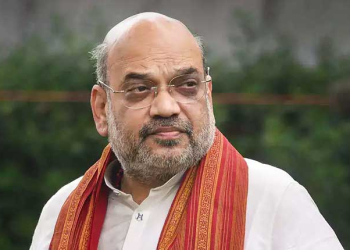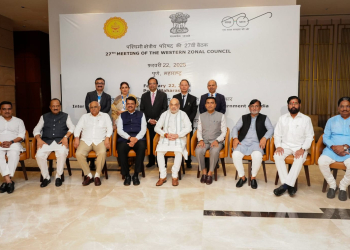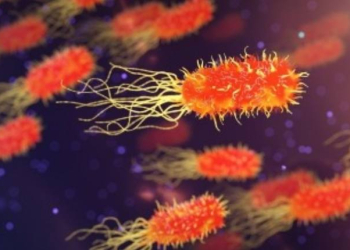New Delhi: Five states — Uttar Pradesh, Rajasthan, Bihar, Madhya Pradesh, and Kerala — account for 49 per cent of the overall extraction of groundwater in the entire country while the rest of the country accounts for 50 per cent, government data between 2004-2020 has shown.
“However, it was only in 2009, that Andhra Pradesh replaced Madhya Pradesh,” said an official associated with Jal Jeevan Mission (JJM), the flagship programme of the Jal Shakti Ministry.
Groundwater is of vital importance as it sustains ecosystems, maintains the base flow of rivers and prevents land subsidence and seawater intrusion, he said.
“These top five states withdraw about 24.37 billion cubic metres (BCM),” the data from the Ministry of Jal Shakti showed adding, between year 2004 and 2020, groundwater drawl has increased from 18.09 BCM to 27.31 BCM implying an average annual increase of 576 million cubic metres.
However, these are not the highest groundwater withdrawing states in terms of absolute volume. The stage of ground water extraction is very high in Delhi, Haryana, Punjab and Rajasthan, where it is more than 100 per cent, which implies that in these states, the annual ground water consumption is more than annual extractable ground water resources.
In the states of Himachal Pradesh, Tamil Nadu, Uttar Pradesh and UTs of Chandigarh and Puducherry, the stage of ground water Extraction is between 70-100 per cent.
In the rest of the states / UTs, the stage of ground water development is below 70 per cent.
As per the 2017 assessment of Dynamic Ground water resources, the total annual ground water recharge for the entire country has been assessed as 432 BCM and total natural discharges worked out to be 39 BCM, making the annual extractable ground water resources for the entire country to be at 393 BCM.
The total annual ground water extraction of the entire country for the year 2017 has been estimated as 248.69 BCM with the agriculture sector being the predominant consumer of groundwater resources.
About 89 per cent of total annual ground water extraction i.e. 221.46 BCM is for irrigation use. Only 27.24 BCM is for domestic & industrial usage, which is about 11 per cent of the total extraction.
At global level, groundwater sources provide almost half of all drinking water worldwide, about 40 per cent of water for irrigated agriculture and about 1/3 for the industry.
The Central Ground Water Board (CGWB) statistics shows that the contribution of groundwater is nearly 62 per cent in irrigation, 85 per cent in rural water supply and 50 per cent in urban water supply, the officer said.
(IANS)



















